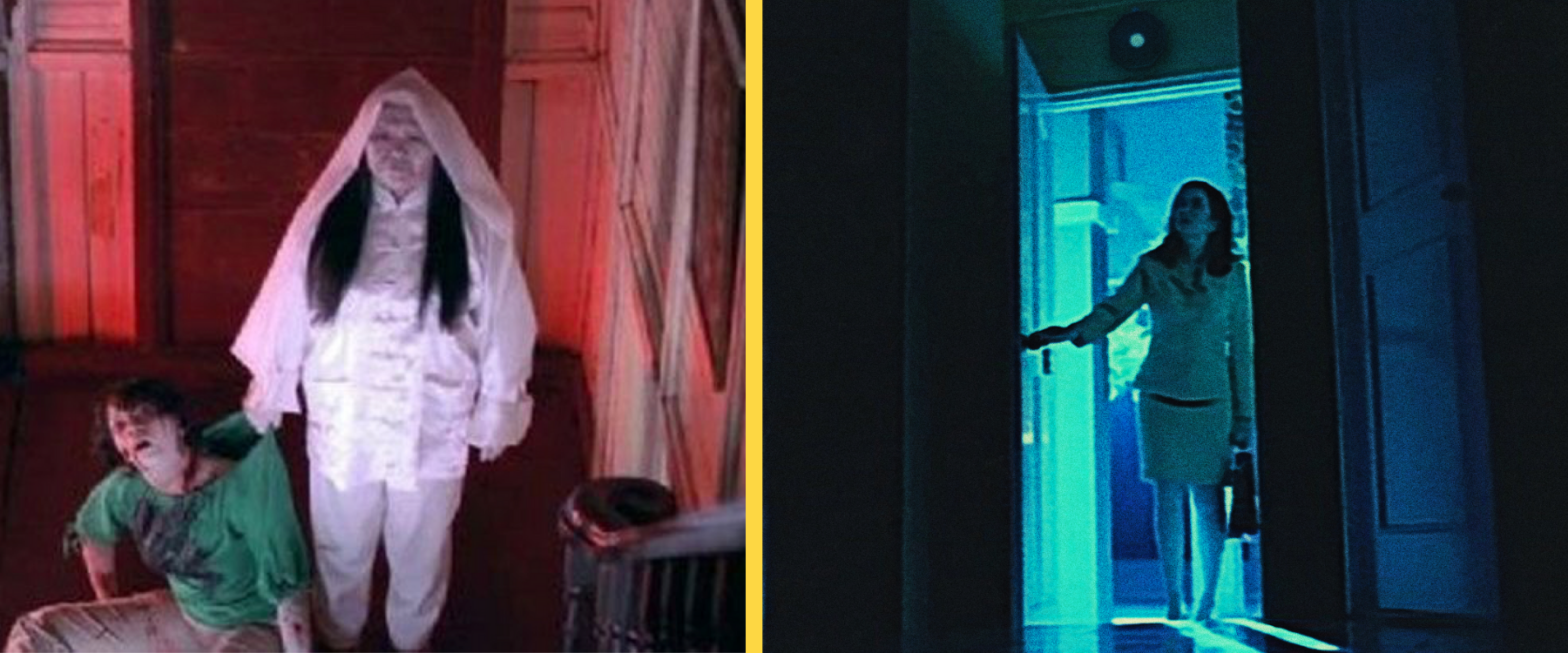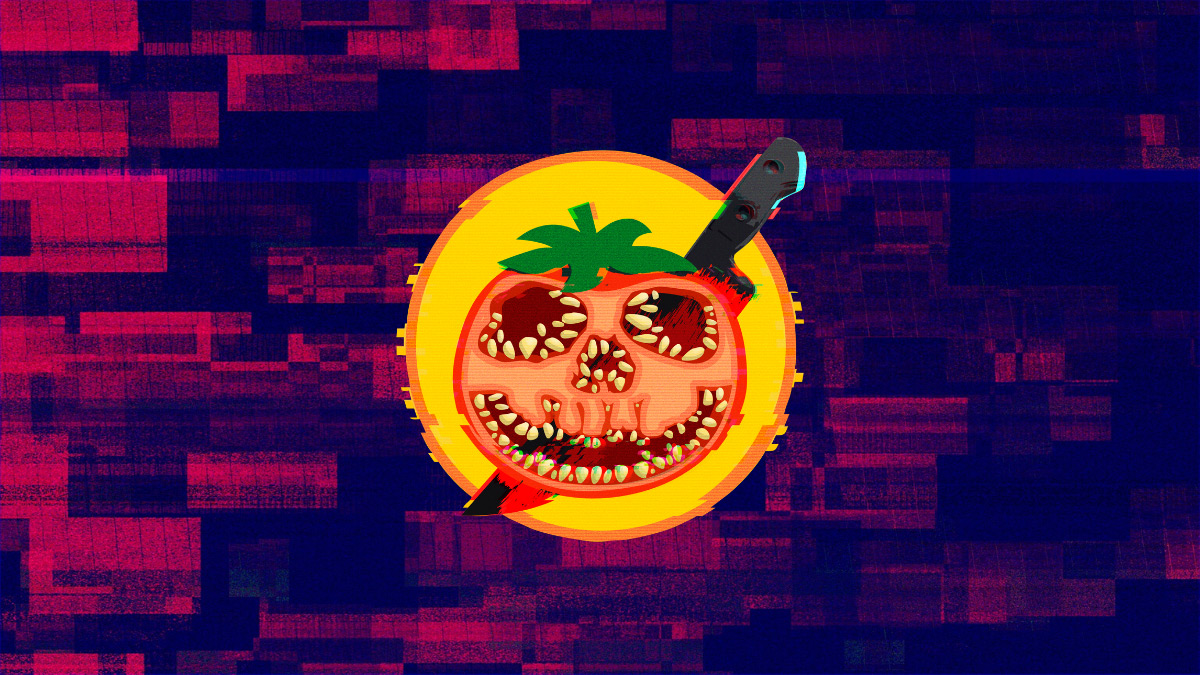Editorials
How Chito S. Rono’s ‘Feng Shui’ Is Diminished By Its Cultural Stereotypes
September 8th, 2020 | By Kyle Tam

When I was still in middle school, my school had a tradition during the days before an end of the term. Each of the classrooms would have a television and a movie; during the final two hours of classes, you could go to any one of the classrooms and watch whatever was playing there. Typically, for us to engage with Filipino culture, the movies would all be local flicks. The offerings varied in tone and genre, ranging from the 80s teen comedy Bagets to the superhero comedy Lastikman. But one of the most popular films, and the one I almost always watched, was the 2004 Filipino horror hit Feng Shui.
Helmed by director Chito S. Roño, Feng Shui follows the story of a woman named Joy Ramirez (Kris Aquino), who finds a bagua mirror wrapped in a paper bag on the bus. When she hangs it on the wall of her home, good things – like lottery wins and promotions at work – begin to happen all around her. Unfortunately, good luck is often chased by bad, and the people who happen upon the mirror find themselves dying in mysterious Chinese Zodiac-related incidents. These deaths range from the mundane (a brawl at a cockfight), to the absurd (a woman falling and being impaled on Red Horse beer bottles), to the tenuously connected at best (Joy’s “dog” of a husband being murdered as the result of an affair). It is up to Joy to figure out the reason for these deaths and stop them before any more of her loved ones are claimed.
WATCH: The Balance of Exploitation and Empowerment in the Films of Sion Sono
The Filipino film scene has always been forced to clash with the timing of Hollywood releases. Hollywood blockbusters typically dominate locale cinema screens, relegating local releases to a handful of screens (at best). This means that so-called arthouse films are reserved for the Metro Manila Film Festival; the typical movie theater fare is either slapstick comedy or the edge-of-your-seat horror, with the occasional foray into hard-hitting drama or dramedies such as Crying Ladies or Heneral Luna. In terms of Filipino horror specifically, the genre is over-inundated with ghost stories, demon stories, or creature-based stories, with the most well-known being the Shake, Rattle, and Roll anthology at fifteen films in the series.
This helps explains how Feng Shui could become the perfect horror film for my preteen friends and I. In typical Filipino horror fashion, the movie was chock full of jump scares and surprises; Aquino’s shrill screams of terror still echo in my memory. It may not have been prestige cinema by any stretch of the imagination, but it served as a frequent source of entertainment. Still, there was always something about this film that rubbed me the wrong way. It wasn’t until I was older that I realized that what was eating away at me was how much the film tried to play on anti-Chinese fears to help sell its scares.
Chinese immigrants have been a part of Filipino history since the earliest days of its inception. Trade and travelers flowed in from China long before Magellan even stepped foot on its sandy beaches. In the past, China traded silks for Filipino spices, intermingling and becoming irrevocably part of our cultural fabric. Primarily emigrating from the Hokkien provinces along the mainland, Chinese-Filipinos are now an integral part of the local population alongside more recent immigrants from the Chinese mainland. Even so, there are undeniable tensions between Chinese immigrants, Chinese-Filipinos, and the Filipino community. Accusations of Chinese executives muscling out locals and Chinese-run Philippine Offshore Gambling Operators siphoning up real estate go hand-in-hand with anti-Chinese rhetoric that sees foreigners from the mainland as enemies or boogiemen.
That’s why the anti-Sino undercurrents in Feng Shui leave such a foul taste in the mouth. For one, the title choice is meant to invite terror or discomfort in a potential viewer, so using the name for what is a harmless or even beneficial practice of balancing energies demonizes the form. Feng shui is about creating harmonious balance, but here it is used in the same way ouija or voodoo have been given sinister connotations in the West. The logic behind the curse itself is also dubious at best: a ghost basing their kills around the Chinese Zodiac? It would be like a Greek ghost using the Western horoscope, or a French spirit favoring tarot-based kills – arbitrary and superstitious. Certainly, it helped make Feng Shui a much more memorable movie, but at the cost of combining Chinese superstitions in an arbitrary and oppressive way.
READ MORE: How National Trauma Shaped Alejandro Amenábar’s ‘Tesis’
Of course, the biggest offender here is the movie’s antagonist – Lotus Feet. The backstory behind her inception as a ghost is that she had her feet bound in the traditions of ancient China, making her a liability when her brother attempted to flee the revolution of Sun Yat-Sen. Out of fury and vengeance against their privileged owner, her servants killed her, and it is her curse that inhabits the mirror. In a cast dominated by Filipino characters, she is one of only two prominent Chinese characters featured, defined by her rage and by the shuffling of her bound feet in some of the film’s most tense scenes.
What feels particularly disappointing about Lotus Feet is that she is defined by her foot binding – something out of her control – and treated not as a figure of sympathy but as a being of vengeance. A more nuanced movie may have spent time helping her find closure or redemption, coming to terms with the injustice done to her by a culture that threw her away. Instead, she figuratively (and literally) looms over the whole proceeding as a nonliving jump scare whose contribution to the plot is to creep the hell out of anyone who approaches. Being half-Chinese myself, I think about her depiction now and wince at what it represents: the fear of the supernatural being conflated with the fear of the unknown. I watch it and have to ask myself, “Are my friends scared of me too?”
At its core, Feng Shui is a scary story for those secretly afraid of Chinese people and their Chinese ways. A more favorable reading might suggest that it is a parable about the woes of relying too much on Chinese fortunes for good luck; that ultimately, one must learn to make their own luck in an unfair world. Then again, maybe that’s giving too much credit to a movie whose main villain is called Lotus Feet.
Visit our Editorials page for more articles like this. Ready to support more original horror criticism? Join the Certified Forgotten Patreon community today.

